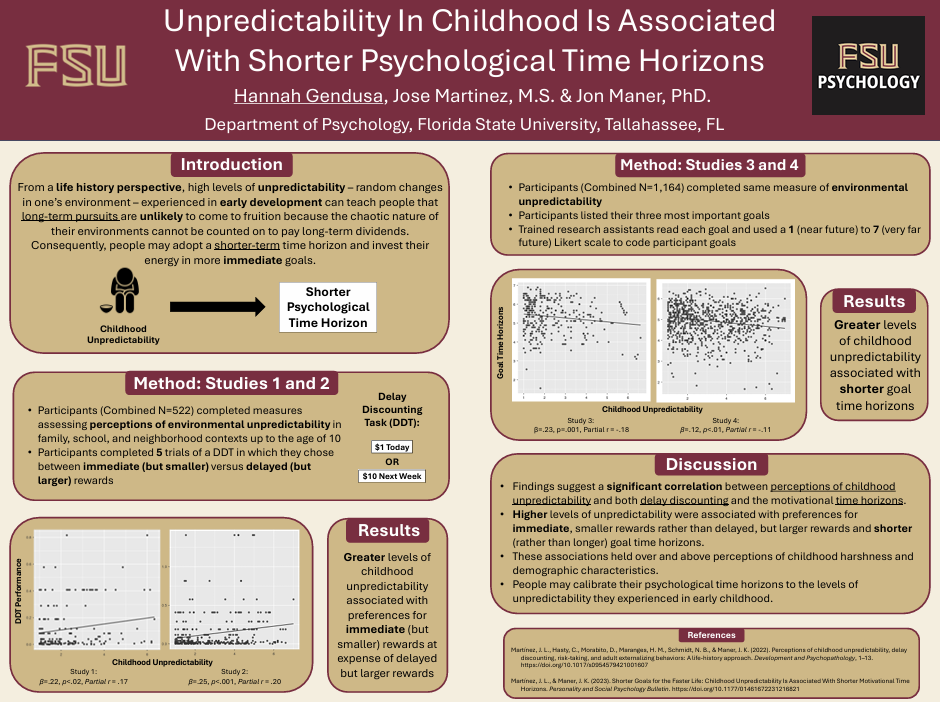Research Symposium
25th annual Undergraduate Research Symposium, April 1, 2025
Hannah Gendusa Poster Session 3: 1:45 pm - 2:45 pm/ Poster #103

BIO
My name is Hannah Gendusa, and I am a senior majoring in Biological Sciences with minors in chemistry and psychology. For the past three years, I have worked as a research assistant in Dr. Jon Maner’s Evolutionary Psychology lab, contributing to various projects with a particular focus on life history theory. Beyond research, I have been actively involved in the Medical Response Unit, serve as President of a research organization, and work part-time as a medical assistant in a pediatrics office—what can I say, I like to stay busy! After graduation, I plan to continue my research involvement while pursuing a Master of Science in Physician Assistant Practice.
Unpredictability In Childhood Is Associated With Shorter Psychological Time Horizons
Authors: Hannah Gendusa, José Martinez, M.S.Student Major: Biological Sciences
Mentor: José Martinez, M.S.
Mentor's Department: Psychology Mentor's College: College of Arts and Sciences Co-Presenters:
Abstract
From a life history perspective, high levels of unpredictability experienced in early development can teach people that long-term pursuits are unlikely to come to fruition because the chaotic nature of their environments cannot be counted on to pay long-term dividends. Consequently, people may adopt a shorter-term time horizon and invest their energy in more immediate goals. The current research documents associations among perceptions of childhood unpredictability, delay discounting (Studies 1 and 2), and the motivational time horizons to which people set their important life goals (Studies 3 and 4). Higher levels of unpredictability were associated with preferences for immediate (albeit smaller) rewards rather than delayed (but larger) rewards in a delay discounting task and shorter (rather than longer) goal time horizons. These associations held over and above perceptions of childhood harshness and several demographic characteristics, and were observed in both college and community samples (Total N=1,686). The findings from this work suggest that people may calibrate their psychological time horizons to the levels of unpredictability they experienced in early childhood.
Keywords: Psychology, Unpredictability, Goal-making, Delay Discounting

